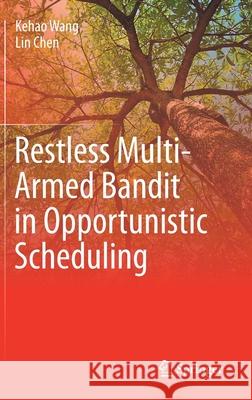Restless Multi-Armed Bandit in Opportunistic Scheduling » książka
topmenu
Restless Multi-Armed Bandit in Opportunistic Scheduling
ISBN-13: 9783030699581 / Angielski / Twarda / 2021 / 151 str.
Kategorie:
Kategorie BISAC:
Wydawca:
Springer
Język:
Angielski
ISBN-13:
9783030699581
Rok wydania:
2021
Wydanie:
2021
Ilość stron:
151
Waga:
0.41 kg
Wymiary:
23.39 x 15.6 x 1.12
Oprawa:
Twarda
Wolumenów:
01
Dodatkowe informacje:
Wydanie ilustrowane











